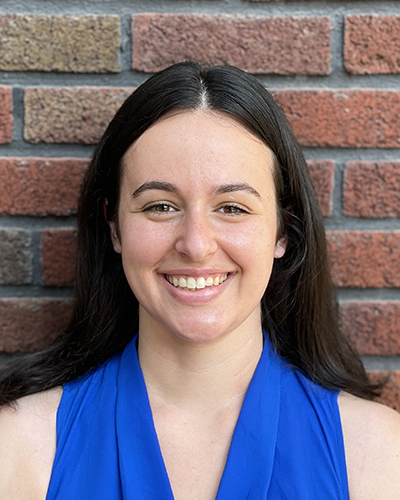by Katie Griffin, Class of 2023
I am one of those applicants who decided to pursue genetic counseling in the last term of my senior year of college. I had not been part of any genetic counseling student organizations, done any shadowing, or really had much exposure to the field in general. A big part of me wished that I had made that decision with more time left, so that I could have remained at UCLA, surrounded by so many resources to utilize for building my application. Thankfully, what I gathered from the last two years was that meaningful experiences can be found anywhere.
Coming out of my undergrad program with a clear mission in mind, I figured that I could get a job right away as a genetic counseling assistant or doing something very similar. As a couple months went by with no responses whatsoever to any of my tens of applications, I realized maybe the path wouldn’t be so straightforward. Maybe my qualifications weren’t as stellar as I thought they were. Going back to the drawing board, I tried to figure out what my degree in biochemistry could lend itself to that might also be somewhat relevant to the field. After interviewing for a company that conducts HIV genotyping and phenotyping, I landed myself a position in a gene sequencing lab. Here, I became familiar with what goes on behind the scenes, after a genetic test is ordered. At this same position, I also had the opportunity to perform diagnostic Covid testing. In this capacity, while I felt like I was contributing to healthcare already doing sequencing to help patients be prescribed the best treatments, it was a significantly different feeling to be on the “frontline,” doing something so globally relevant.
Nonetheless, with my goal of genetic counseling still in mind and knowing that I needed to be saving up more money for grad school, I went on to work at as a lab technician at another genetic testing company where I was able to connect with some lab GCs. Eventually though, that first company reached back out to me to see if I had any interest in being a project specialist for a newly implemented assay that was being used to test the efficacy of Covid vaccines and therapeutics in clinical trials. It was a position that I felt wholly underqualified for. I knew absolutely nothing about the assay itself and I had no experience streamlining anything or doing project management. However, I felt like it could be an incredible opportunity to return to the “frontline” and hone my critical thinking, organizational skills, and communication. Even though the role wasn’t directly relevant to genetic counseling, these are skills I see coming into play in grad school constantly. This is all to say that while my goal of getting into grad school and becoming a genetic counselor were always on my mind, I felt I needed to take risks and follow opportunities that would also suit me in the short-term. I had to assess what I was looking for on a day-to-day basis and what would contribute to my happiness as well as my growth.
After holding three different positions in less than two years at two completely different companies, I gained a whole lot of relevant experience that I certainly never considered I’d come across right out of undergrad. I also garnered a passion for the biotech industry and the collective mission to make genetic testing and genetic counseling services more accessible to the public which I hope to contribute to throughout my career. I certainly can’t speak for any admissions committee, but my experience throughout the application process, including interviews, has affirmed my belief that the boxes you may not check off are not nearly as important as the ones you do. Reading through various student bios across several different program websites, I felt so inferior. I didn’t have so much of the experience that other students had, like undergrad research or crisis counseling experience and I was directly asked about these “holes” during interviews. While I was honest and dreaded how that might be received, I knew I wanted my interviewers to know the most genuine me. In the end, I spent a lot more time discussing the experience I did have and although I felt like I might be judged for my bringing up things like my volunteering at a local cat shelter leading up to COVID, I had an interviewer recognize the value of doing volunteer work that is personally enjoyable.
All in all, the best advice I have is this: follow the path you feel is most worthwhile and be confident in knowing that whatever your experiences are, they are valuable. Of course, Match statistics don’t lie and there are a lot of people who will not get in every cycle. This is not to say that a resume can’t be improved but simply that having diverse perspectives and backgrounds is incredibly important so if you’re reading student bios and thinking that you don’t necessarily see yourself reflected, know that you still have something to bring to the table.
